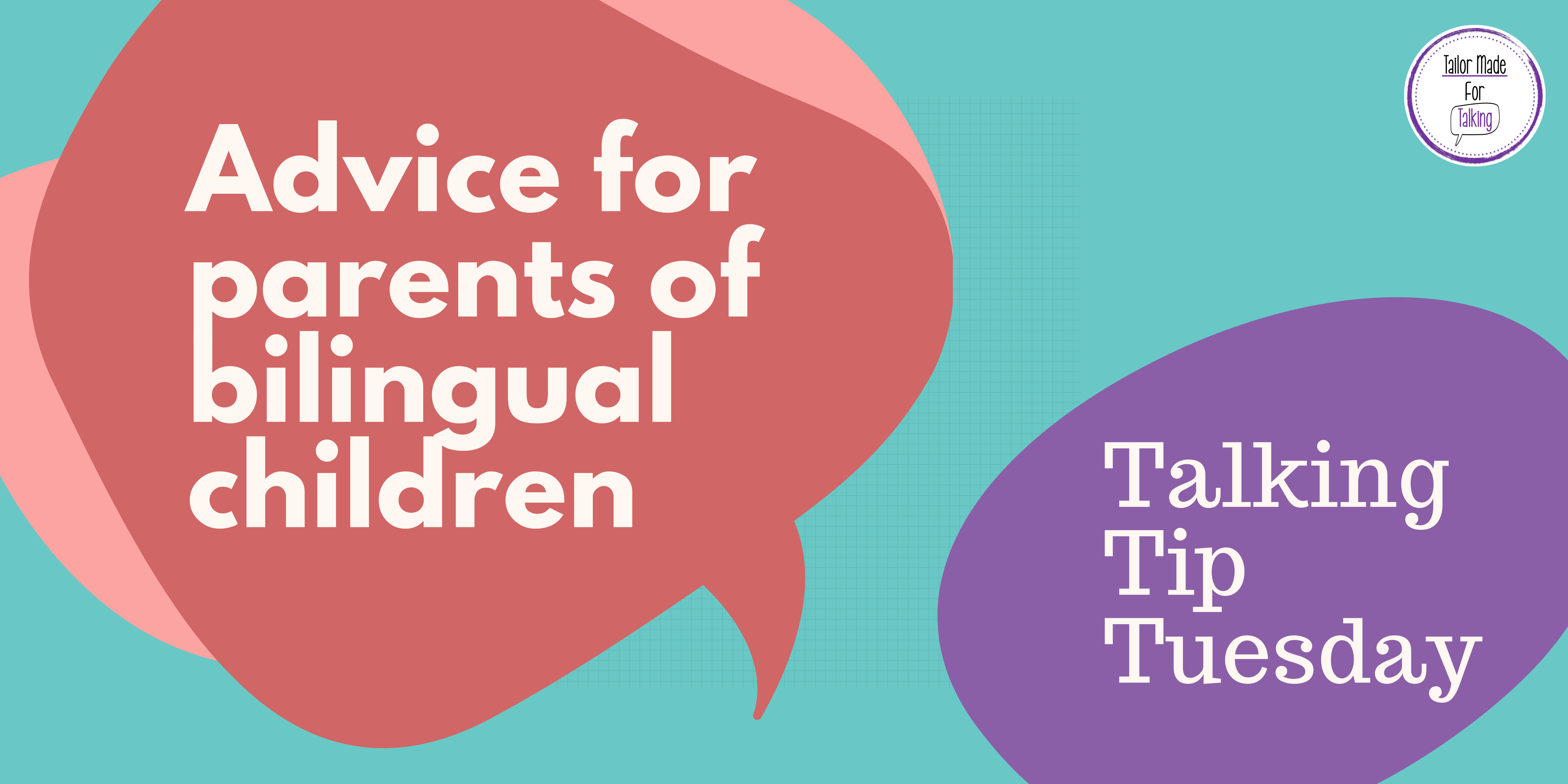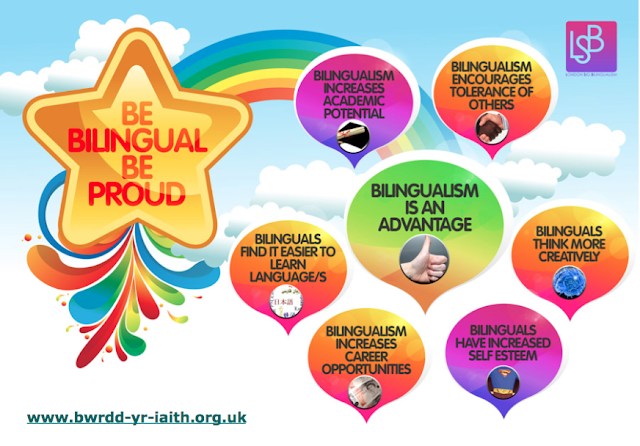
Talking Tip Tuesday is back with a goodie! Yesterday's blog was aimed at helping Speech and Language Pathologists/Therapists think about best practice when working with bilingual children. Today's post is for parents raising a bilingual children.
It is estimated that there are more second language speakers of English in the world than native speakers and also that there are as many bilingual children as there are monolingual children. When you take this into consideration, you realise just how many children are being raised as bilinguals and why this topic is so important.
Advantages of Being Bilingual
Sometimes children are raised as bilinguals out of necessity because their parents are not fluent in English. In these cases, the child will learn one language at home and another language at school. Other times, bilingualism is a choice made by parents. They would like their child to be exposed to another language because of all the advantages that come along with being a bilingual. The below image summarises just some of the advantages that bilinguals have.
Often parents of children with language delays, learning difficulties or developmental disorders will ask Speech and Language Therapists whether they should stop speaking their home language and focus on the child learning English. The short answer? NO! It is important to continue to use ALL languages that have been introduced to the child.
Reasons for continuing with ALL languages the child is exposed to
Apart from the reason in the above picture there are many reasons for continuing to speak both all languages that the child has been exposed to:
- The number of vocabulary words that a bilingual child has in each language is often smaller than average, however the total vocabulary from both languages will be around the same size as a monolingual child. If you were to suddenly stop exposing the child to one of those languages, they would lose half of their vocabulary system.
- In situations where a parent tries to speak a language that they are not comfortable with, they can provide an incorrect model of the language to the child, causing further difficulties for the child.
- Speaking an unfamiliar language with your child can also jeopardise your connection and interaction with them. Language is strongly linked to emotion and identity and if parents are not comfortable with the language that they are speaking, they can have difficulties expressing themselves fully to their children, thereby causing emotional difficulties for both the parent and the child.
- A strong foundation in the home language benefits second language learning. If your child has a good grasp of their home language, they can use these skills to help them learn a second language more easily.
- By removing exposure to the child's home language, the child's links with their home culture can also be compromised.
- When children lose the ability to speak their home language, they also lose the ability to communicate with family members who may only speak that home language and this can make it difficult to build meaningful relationships with these people.
I can attest to that last point! As someone who has grown up as a second generation Canadian, I learned English from birth and although I was exposed to Gujarati and can understand it, I have a lot of difficulty speaking it! This makes it extremely difficult to communicate with elders in our community including my own grandparents and my husband's grandparents. I suppose it's never too late to learn!
The Bottom Line...
The bottom line is that there is absolutely no harm in exposing your children to multiple languages and in fact it is actually beneficial to them! The most important thing is that parents and children share a common language regardless of what that language is so that they can communicate family values, experiences and love for each other. From a speech and language perspective, the major goal of speech and language therapy should be focused on helping the child's skills in their home language so that they have a strong foundation for other languages that they are also learning.


